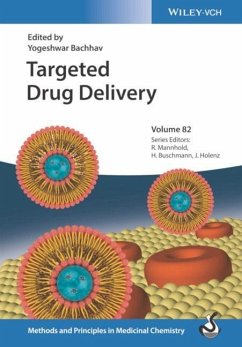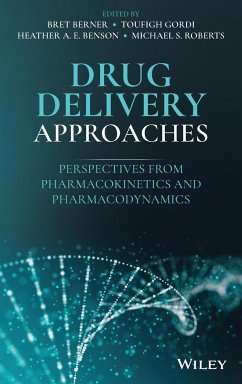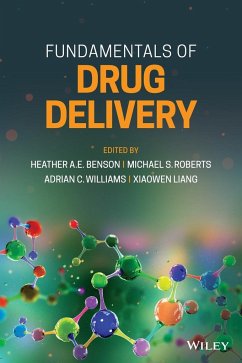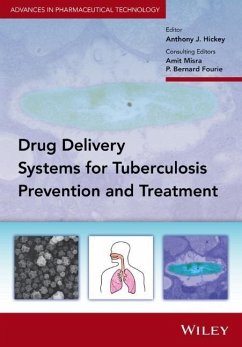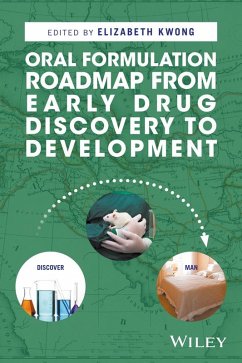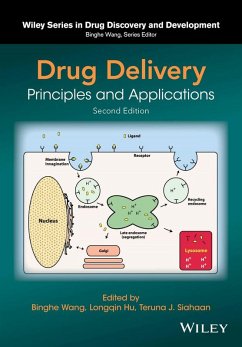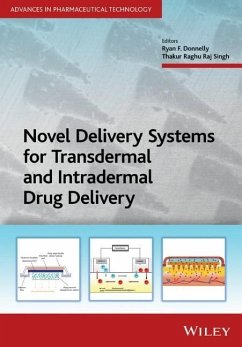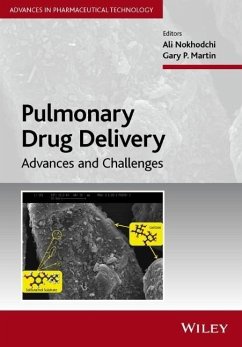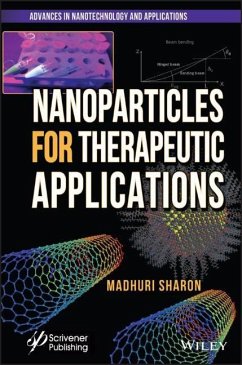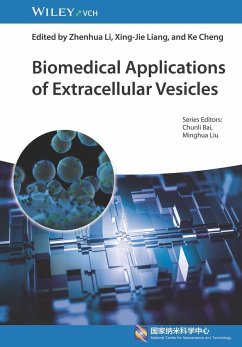
Advances in Novel Formulations for Drug Delivery
Versandkostenfrei!
Versandfertig in über 4 Wochen
223,99 €
inkl. MwSt.
Weitere Ausgaben:

PAYBACK Punkte
112 °P sammeln!
ADVANCES in NOVEL FORMULATIONS for DRUG DELIVERYThe 27 chapters describe novel strategies for drug/nutraceutical delivery and embrace the development of formulations with herbal ingredients, while also highlighting disease therapeutics.Drug delivery technology has witnessed many advancements purported to cater to the customized needs of its ultimate beneficiaries--the patients. Today, dosage forms are not confined to conventional tablets, capsules, or injectables, but have evolved to cover novel drug carriers such as particulates, vesicles, and many others. Nanotechnological advancements have ...
ADVANCES in NOVEL FORMULATIONS for DRUG DELIVERY
The 27 chapters describe novel strategies for drug/nutraceutical delivery and embrace the development of formulations with herbal ingredients, while also highlighting disease therapeutics.
Drug delivery technology has witnessed many advancements purported to cater to the customized needs of its ultimate beneficiaries--the patients. Today, dosage forms are not confined to conventional tablets, capsules, or injectables, but have evolved to cover novel drug carriers such as particulates, vesicles, and many others. Nanotechnological advancements have played a major role in this paradigm shift in ways of delivering active pharmaceutical ingredients.
A new dimension in the use of food as medicine has also gained prominence in recent years. A portmanteau of nutrition and pharmaceuticals is "nutraceuticals," also known as functional foods and dietary supplements. The technologies which were earlier included in drug delivery have been attempted for the delivery of nutraceuticals as well. Herbal actives have received increased attention due to their low risk-to-benefit ratio. The field of drug delivery is quite dynamic in nature, as witnessed by its evolution from conventional dosage forms to nanotechnology-assisted drug products. A variety of formulations via different drug delivery routes have been developed to treat/cure/mitigate diseases or disorders.
This book, comprising of 27 chapters, is a thorough compilation of information relevant to drug delivery systems with an emphasis on products based on nanotechnology.
Audience
Researchers, scientists, industry professionals, formulators and product developers, regulatory agencies in a variety of settings including novel drug delivery research laboratories, pharmaceutical, and pharmacy industries, biomedical sciences, food and nutraceuticals manufacturers, and nanotechnology.
The 27 chapters describe novel strategies for drug/nutraceutical delivery and embrace the development of formulations with herbal ingredients, while also highlighting disease therapeutics.
Drug delivery technology has witnessed many advancements purported to cater to the customized needs of its ultimate beneficiaries--the patients. Today, dosage forms are not confined to conventional tablets, capsules, or injectables, but have evolved to cover novel drug carriers such as particulates, vesicles, and many others. Nanotechnological advancements have played a major role in this paradigm shift in ways of delivering active pharmaceutical ingredients.
A new dimension in the use of food as medicine has also gained prominence in recent years. A portmanteau of nutrition and pharmaceuticals is "nutraceuticals," also known as functional foods and dietary supplements. The technologies which were earlier included in drug delivery have been attempted for the delivery of nutraceuticals as well. Herbal actives have received increased attention due to their low risk-to-benefit ratio. The field of drug delivery is quite dynamic in nature, as witnessed by its evolution from conventional dosage forms to nanotechnology-assisted drug products. A variety of formulations via different drug delivery routes have been developed to treat/cure/mitigate diseases or disorders.
This book, comprising of 27 chapters, is a thorough compilation of information relevant to drug delivery systems with an emphasis on products based on nanotechnology.
Audience
Researchers, scientists, industry professionals, formulators and product developers, regulatory agencies in a variety of settings including novel drug delivery research laboratories, pharmaceutical, and pharmacy industries, biomedical sciences, food and nutraceuticals manufacturers, and nanotechnology.




